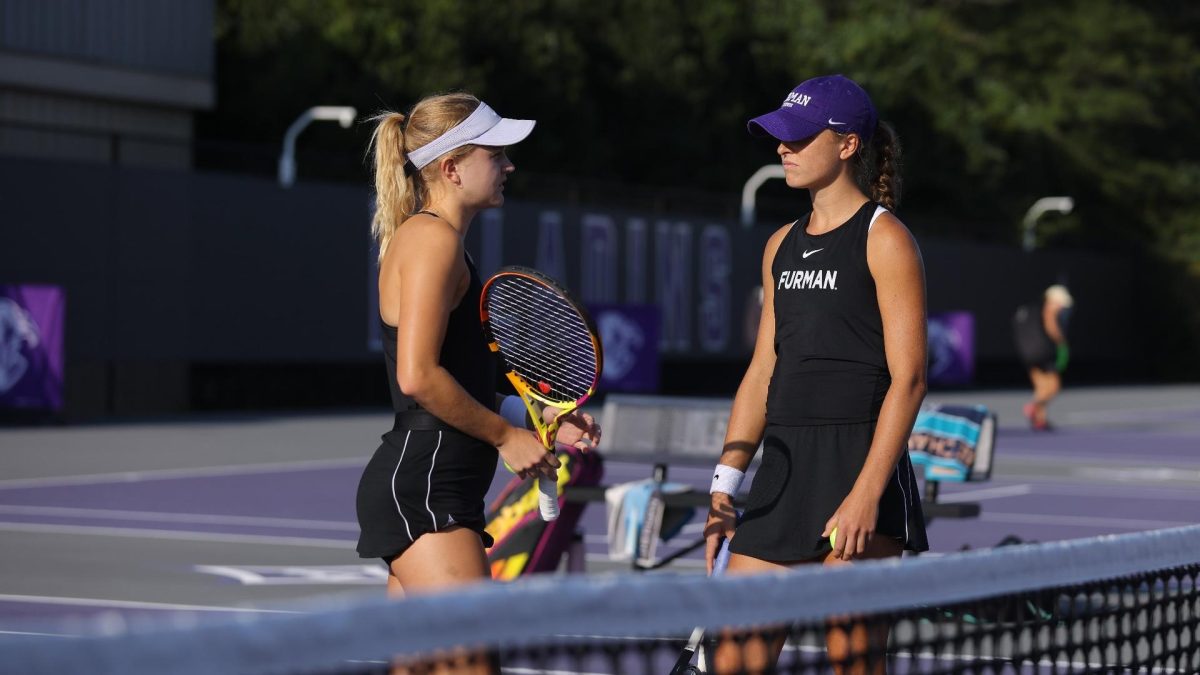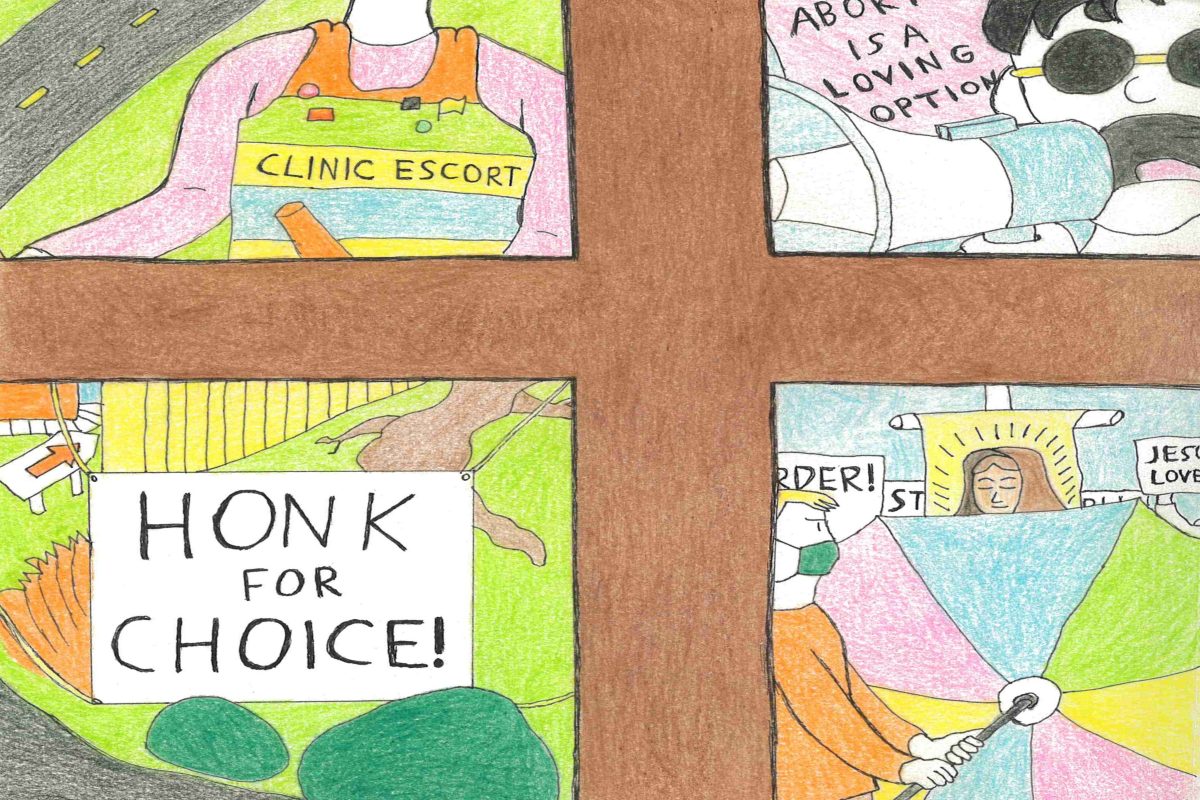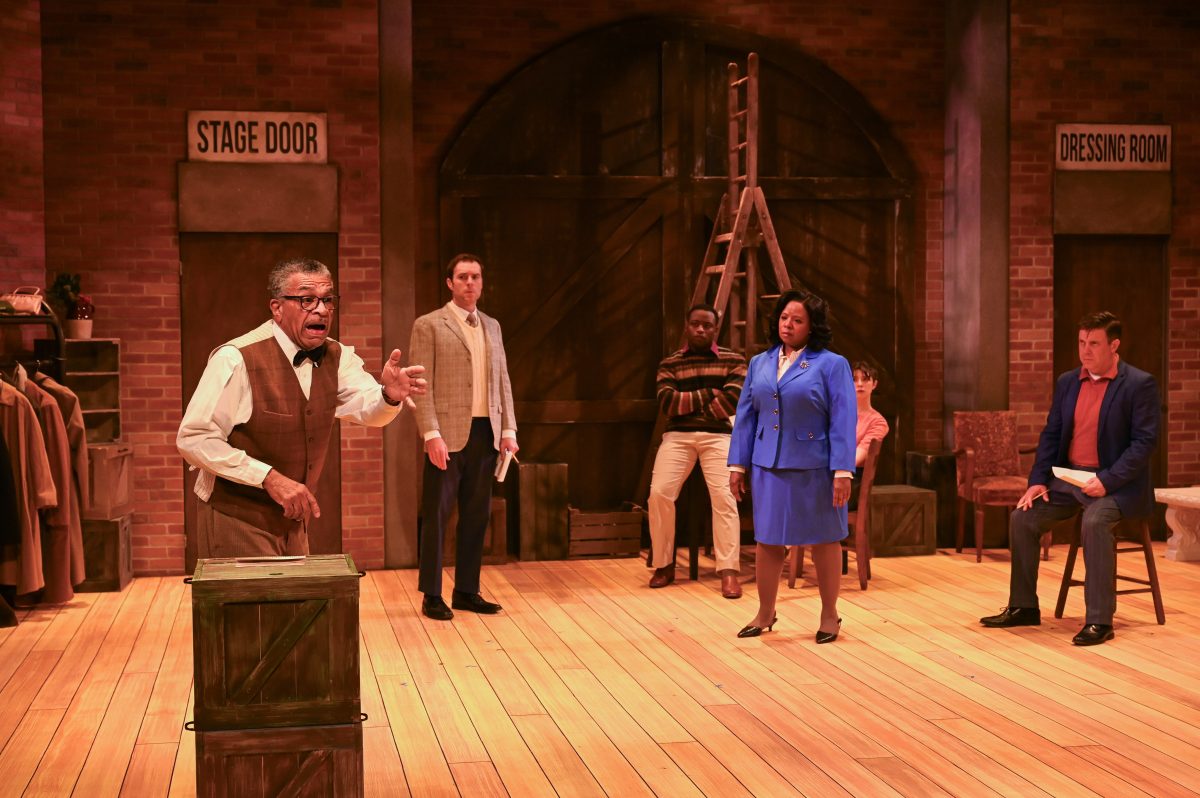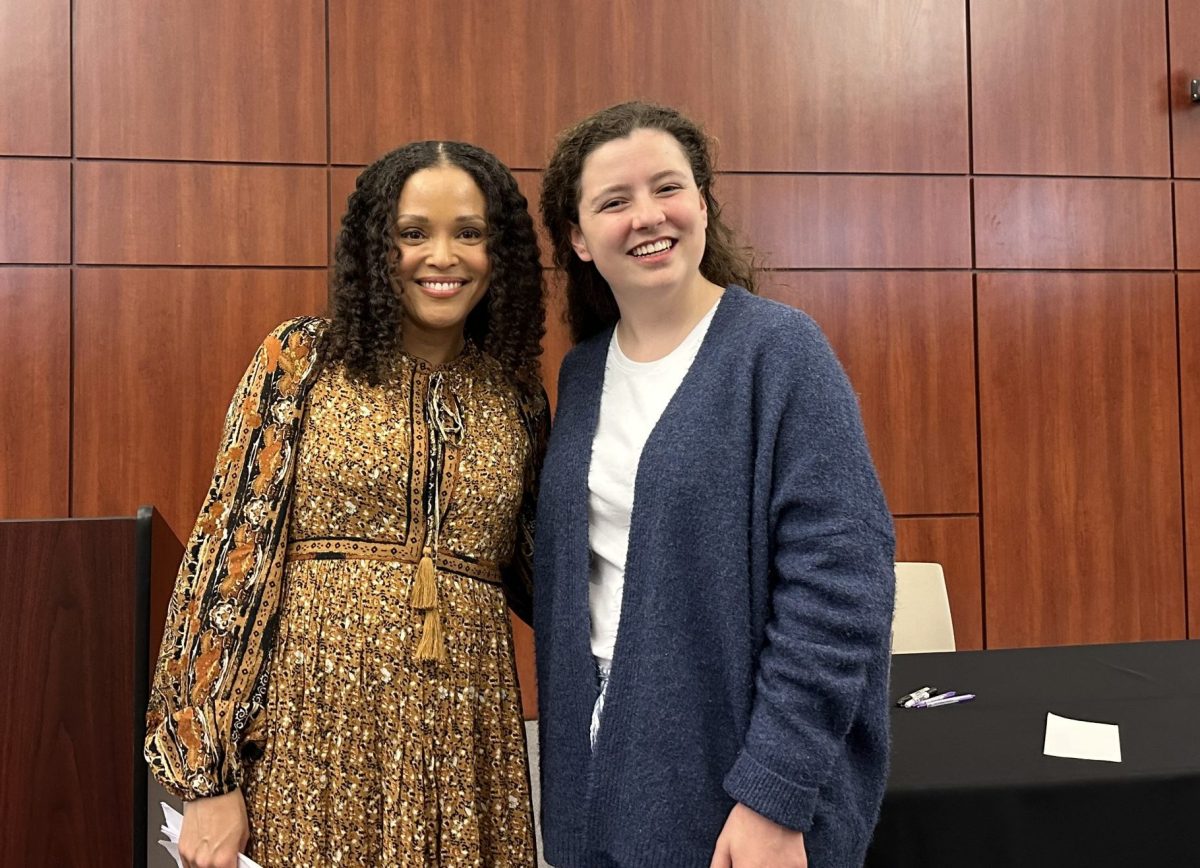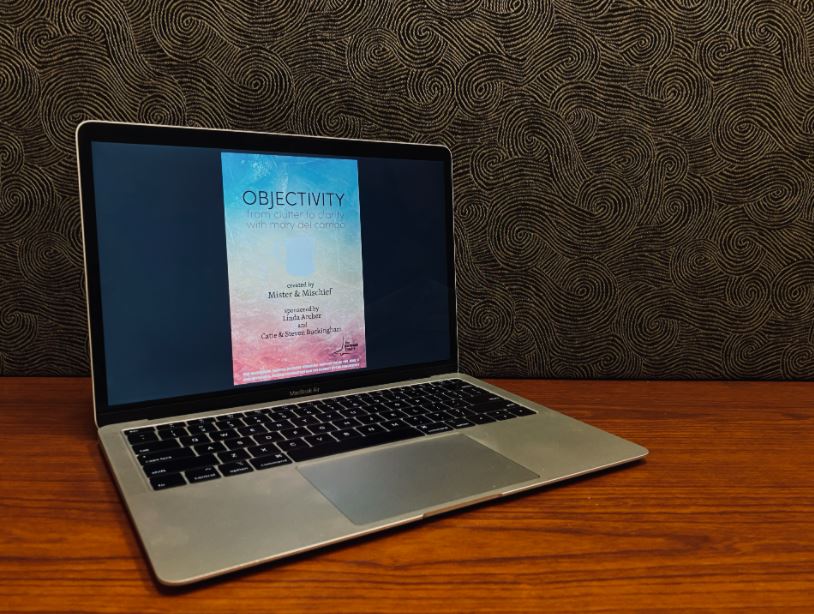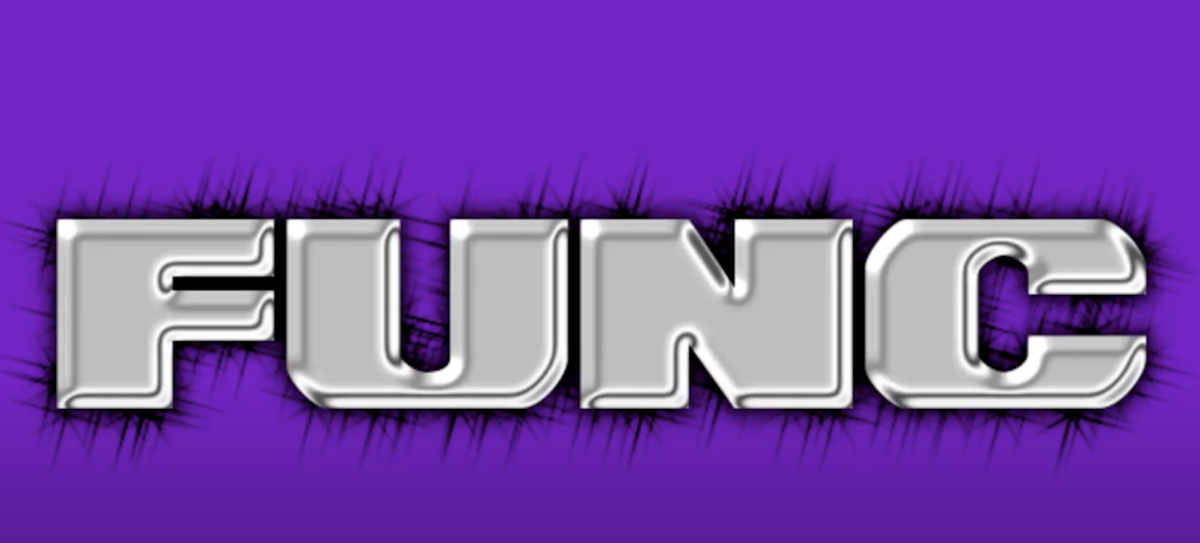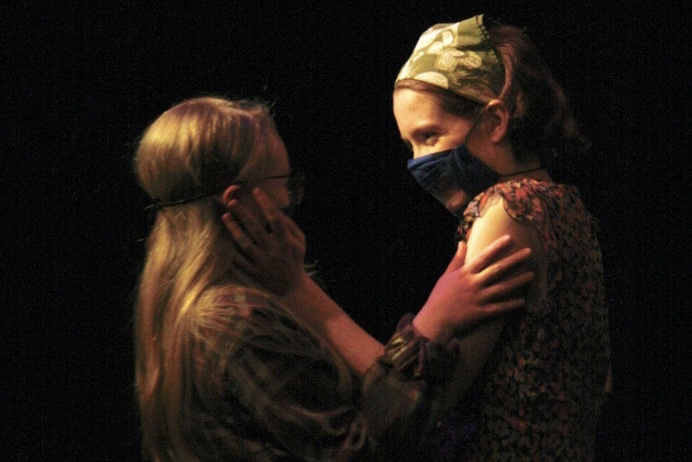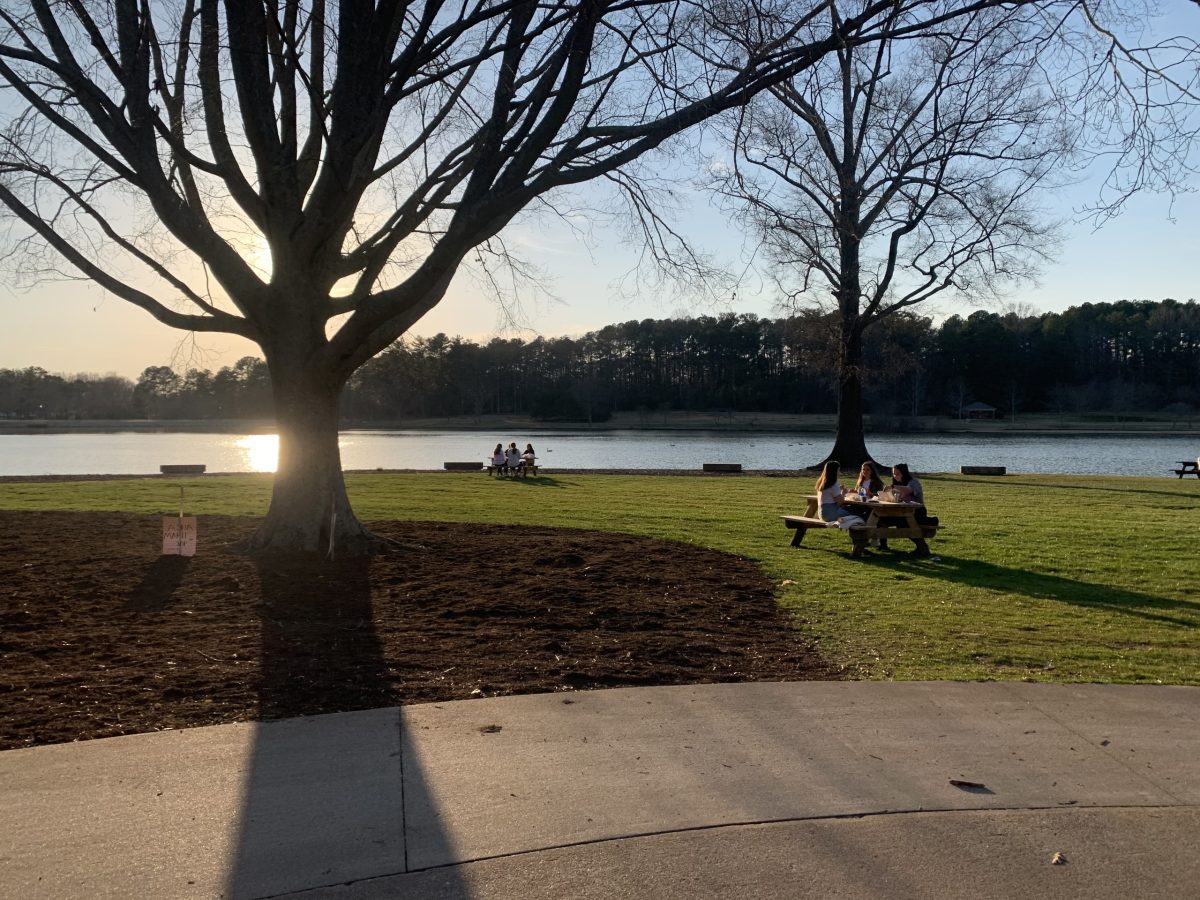I will admit, even I– a theatre geek to my core– was skeptical about a Zoom performance. Still, I sat down at 8:00 p.m. on a Wednesday night, opened my laptop, and logged onto the Zoom link for Objectivity, a fictional seminar on the real topic of decluttering one’s life presented by downtown Greenville’s Warehouse Theatre. Even today, nearly a month later, the show still plays in my mind…
“Welcome to the Warehouse in your house,” Artistic Director Mike Sablone says to 25 faces on a screen as he greets the audience members to soft piano music. Using the chat function, we greet each other too: “Hi, from Silver Lake, L.A.,” “Hi, from Brooklyn, N.Y.,” and “Hi, from Greenville, S.C.” Perhaps, I consider, this assorted audience is a hidden perk of virtual performance.
Sablone invites us to situate our Zoom screens into gallery view to virtually recreate the experience of blackbox theatre. The “Zoom DJ” (known as the stage manager in traditional theatre), Breanna Strife, takes control of our screens next. “Are you ready to change your life today?” she asks, and then introduces us to the night’s main event: Mary Del Campo.
Mary, played by Jessica Eckenrod Cherry, appears on our screens wearing a bright orange sweater and a big warm smile. She is enthusiastic, bubbly, and she uplifts the energy of our virtual room instantly. She begins the decluttering seminar with a brief slideshow, and lets us know that she is aware that we are living in a time where we have been stuck inside and “forced to stare at our stuff.”
We’ve all brought an object to the seminar– something we can’t seem to make ourselves get rid of. She asks us to hold the objects up to our screens so she can greet them, and so they can greet each other. Perhaps her energy was seeping through our screens, because even in the awkwardness of a Zoom room we all do as she asks, most of us with a smile.
The things we brought prove to be eclectic: keys, mugs, shoes, blenders, sculptures, pins, books. Mary begins to interact with us and our objects, saying that they “are a mirror” to ourselves. She asks us yes or no questions– does the object serve a functional purpose, is it a source of pride, a source of tension, does it have a personality, does it like the cool side of the pillow– to which we answer by either turning our cameras on or off. To my surprise, the effect of this technique makes me feel like our virtual audience really does have a sense of community.
For the rest of the night, Mary interacts with a select few audience members, their Zoom grids pinned alongside hers for a spotlight effect. (It should be mentioned that the technical flow of the Zoom performance was smooth, unperturbed, seemingly effortless, and entirely compelling. At times, I found myself thinking that teachers, managers, and CEOs alike should watch the performance in order to understand how to run a Zoom room.) She asks her participants to describe the object in three words. After they do, she poses a stirring question: “Are these words about your objects, or about you?”
Yet perhaps the most remarkable moment of the night comes when audience member Bill Larkin (later revealed to be a planted actor) begins to ask Mary how to get rid of a mug that his ex-boyfriend left at his house. Sitting at a piano instead of a desk because his house was so cluttered, Bill sporadically breaks into melodies and lyrics. Anxious, overwhelmed, and yet earnest, he confesses that he feels the mug is part of him. “I assure you that it is not,” says Mary. There is a tense debate between the two of them, and the audience follows both sides compassionately. “I just, I don’t know,” says Bill, over and over again.
And this is where Bill grabs us in all of our uncertainties these days. “I know seven months is long to go without a hug, but ditch the mug? I don’t know,” he sings, and we understand the immediacy of this feeling. “Life is different everyday,” he continues, and wonders why he cannot tether himself to something so it doesn’t float away. He says he needs an anchor. Then, in contrast to Mary’s decluttering mantra, he asks the sharpest question yet for a time when so many of us feel displaced, isolated, unable to perform the functions we usually perform: “If we’re not serving our purpose, are we valueless?”
Bill sings loudly, “Hold up your object and sway it back and forth if you don’t know anything about anything right now,” and my Zoom screen fills with waving objects and tear-filled eyes. I wave my object, too. Bill goes silent; Mary as well. “Do you ever feel like you’re cluttered?” he asks, to which she responds-– almost as the voice of all of us in the audience–“Of course I do.”
At the end of the seminar, Mary asks us all to hold our objects closer to us if we feel we still need them, and farther from us if we feel we are now ready to let go. Most of us still keep our objects close. But that does not deter her. In her parting message, rather than focus on the objectivity of our things, she turns to our own identities. She has us unmute our microphones, close our eyes, and recite, “I am one person, and I have value.” She thanks us for our time, and leaves the Zoom room.
Such was the experience that has been playing in my mind on repeat. Indeed, what started as an ordinary Zoom meeting ended as an experience that I cannot help but recall as I open my computer screen to my online classes each day since. Though I was a skeptic at the start, the Zoom performance succeeded in what any live theatre performance hopes to do: create a community, provide a spectacle, and impart a message. That is a success.
Yet, I’d argue that the true victory of Objectivity lies in the fact that this virtual spectacle and its message seemed almost more timely and needed than whatever could have been brought by a tried and true live production. Experimental, true to current times, and yet still optimistic, this production reminded us that, despite our uncertainty, our anxiety, our cluttered-ness, our isolation, and our moments of complete lack of faith and feelings of purposelessness, we still have a value, we still have each other, and, even though we might overlook it, we have ourselves.















